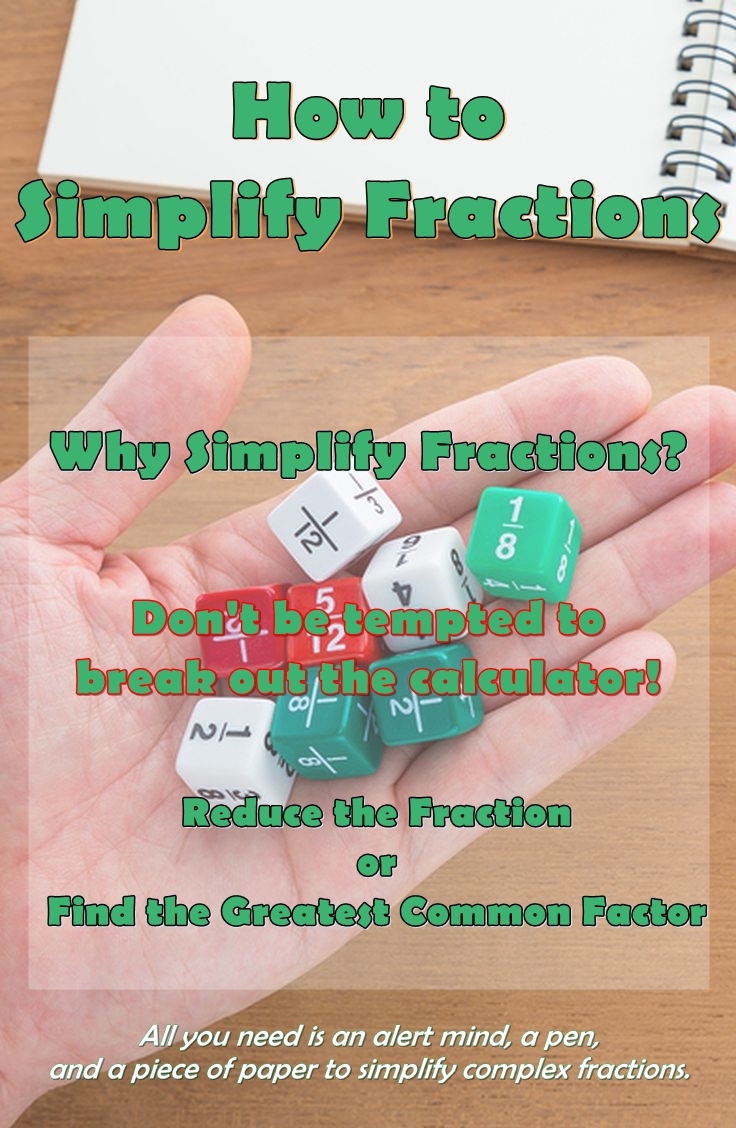
What's For Dinner?
Make dinner time, family time!
Article – How to Simplify Fractions - Jump to article
Subscribe to our free weekly newsletter

What's For Dinner?
Make dinner time, family time!
Article – How to Simplify Fractions - Jump to article
Subscribe to our free weekly newsletter


–by Marck
Mathematics is essential to daily life, although some people get intimidated by fundamental concepts and basic operations. One of the concepts that can confuse students is simplifying fractions.
Share It!

How to Simplify Fractions
Mathematics is essential to daily life, although some people get intimidated by fundamental concepts and basic operations. One of the concepts that can confuse students is simplifying fractions. Here are some techniques and operations that you should be familiar with when you’re tasked to simplify numbers expressed in fraction form.
A fraction is a number that signifies a part of a whole. Fractions are technically division operations, with two numbers representing the part of the whole that the fraction represents. A fraction has two parts:
While it is possible to work with fractions that are expressed in large numbers, it’s best to express a fraction in its simplest terms to speed up calculations.
One way to reduce a fraction is to divide the numerator and the denominator by the least common multiple (LCM). The LCM is the smallest number that acts as a divisor between two numbers. Here’s an example for a given fraction 9/27:
Another way to simplify fractions is to find the greatest common factor (GCF). All numbers are made up of factors, and the GCF is the largest factor shared by both the numerator and the denominator. Here’s an example for a given fraction 6/18:
Many mathematical operations may tempt you to break out a calculator or to find a suitable program on the Internet. With these tips, all you need is an alert mind, a pen, and a piece of paper to simplify complex fractions.